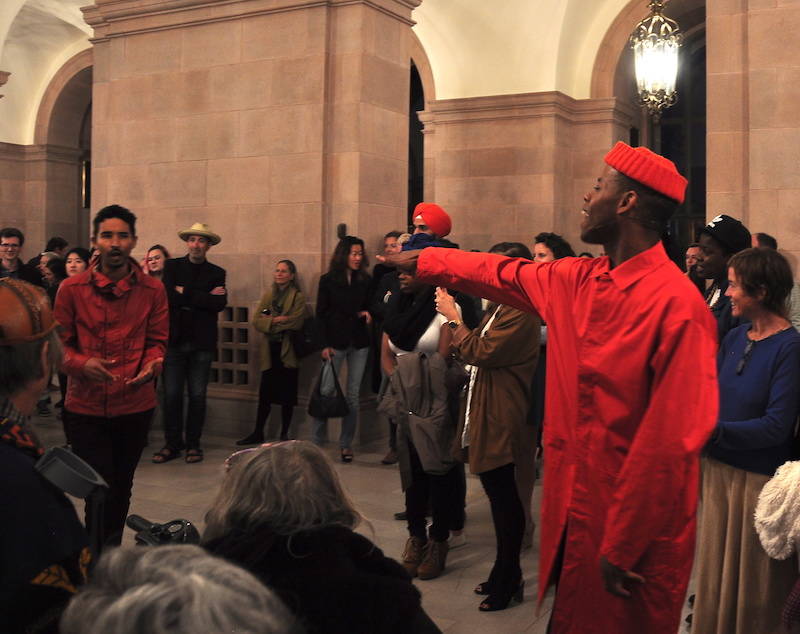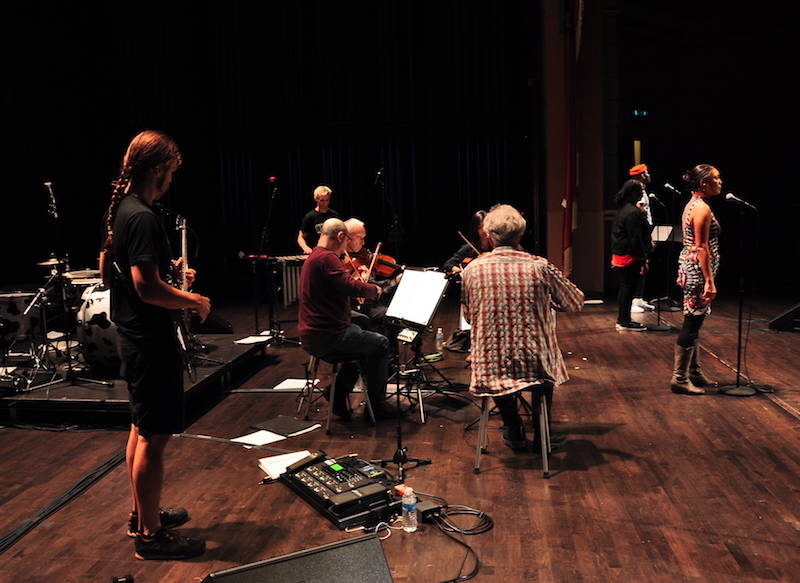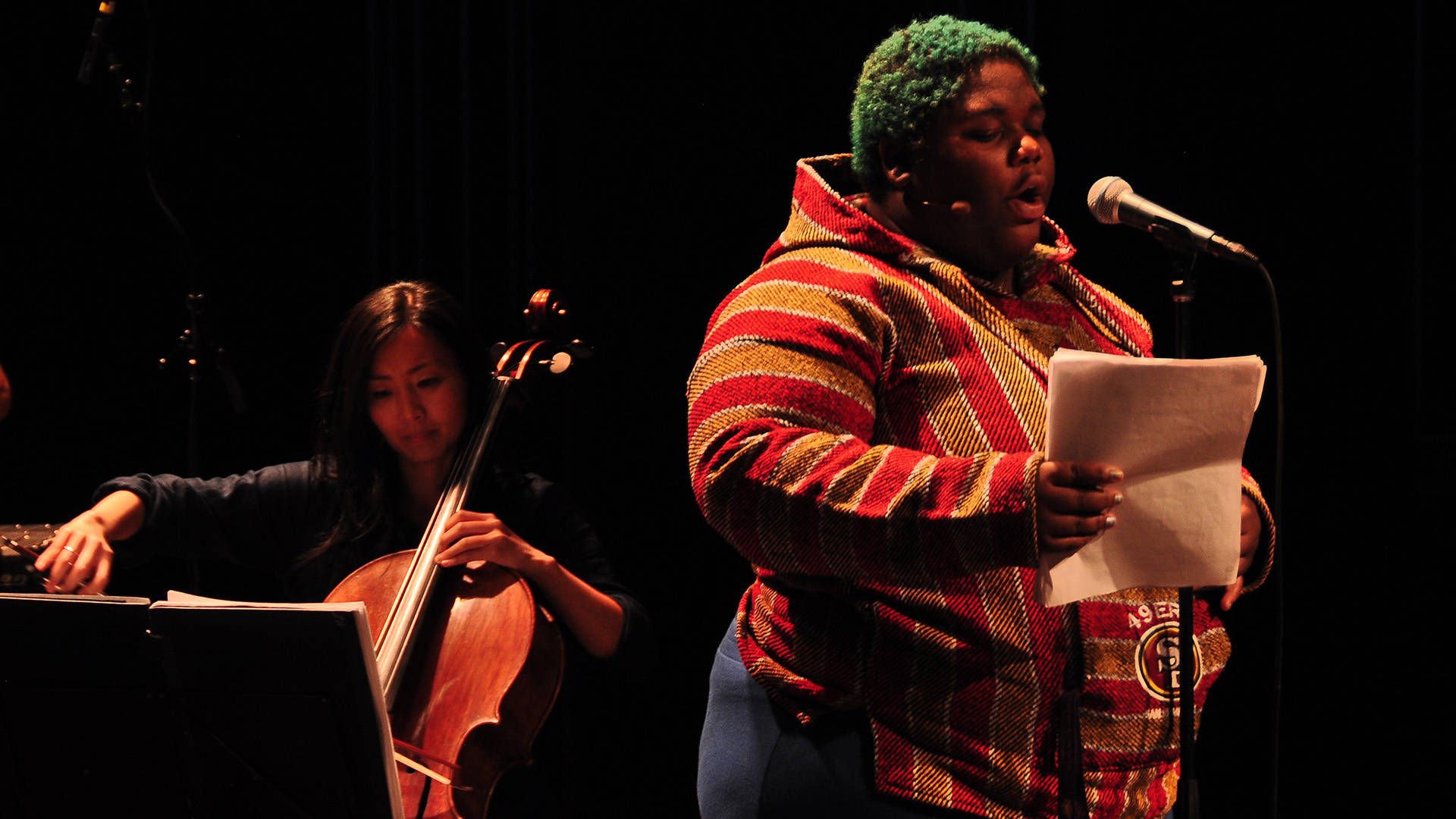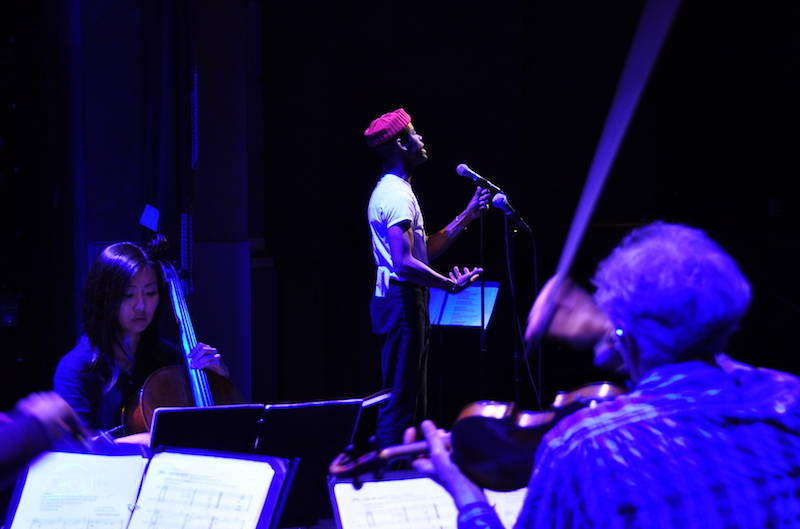Attendees mingled in the lobby of San Francisco’s Herbst Theatre before the Oct. 7 premiere of Echoes, a new collaboration between spoken word poetry non-profit Youth Speaks, esteemed classical ensemble Kronos Quartet, and rock duo the Living Earth Show, directed by Sean San José of local theater troupe Campos Santos. As audience members waited for the theater doors to open, Youth Speaks poets suddenly burst into the crowd, bouncing around the marble hall and animatedly asking, “Where you from?”
Some people proudly shouted out their cities — Frisco, Richmond, Oakland — while others answered with more remote places like Omaha and Brooklyn. Although some audience members gladly played along, others visibly shifted in their seats when asked to call out their cities of origin. The night was, after all, billed as a performance about gentrification, and the poets’ seemingly innocuous question was also a loaded one.

This pre-show warm-up exercise illustrated the contrast between the young poets of color and the older, mostly white, well-to-do classical music audience presenter San Francisco Performances attracted. Set to the soundtrack of Kronos’ tense strings, much of Youth Speaks’ poetry was written in a sharp-tongued second person that implicated San Francisco’s well-meaning liberal elite in their complicity in gentrification and displacement — a cycle that has disenfranchised San Francisco’s immigrant communities and rendered its black population nearly nonexistent.
Here was a group of poets who came from the communities hit hardest by these forms of systemic inequality, bluntly addressing their struggles to an audience of gentrification’s beneficiaries. And yet, even though Echoes confronted its audience with their place in this cycle, the show got a standing ovation — a hopeful sign that its urgent message was received.

Echoes anchored around the poetry, with the music, written by composer Danny Clay, mostly serving to amp up its emotional impact. While the poets read heartfelt passages, Kronos Quartet played drawn-out, sorrowful minor chords, sometimes coming to an abrupt halt to make space for particularly impactful lines. In between poets, Kronos Quartet’s cellist, violist, and two violinists jammed out with Living Earth Show’s guitarist and percussionist, creating a heavy metal-chamber music fusion that underscored the anger, frustration, and pain the poets expressed.




